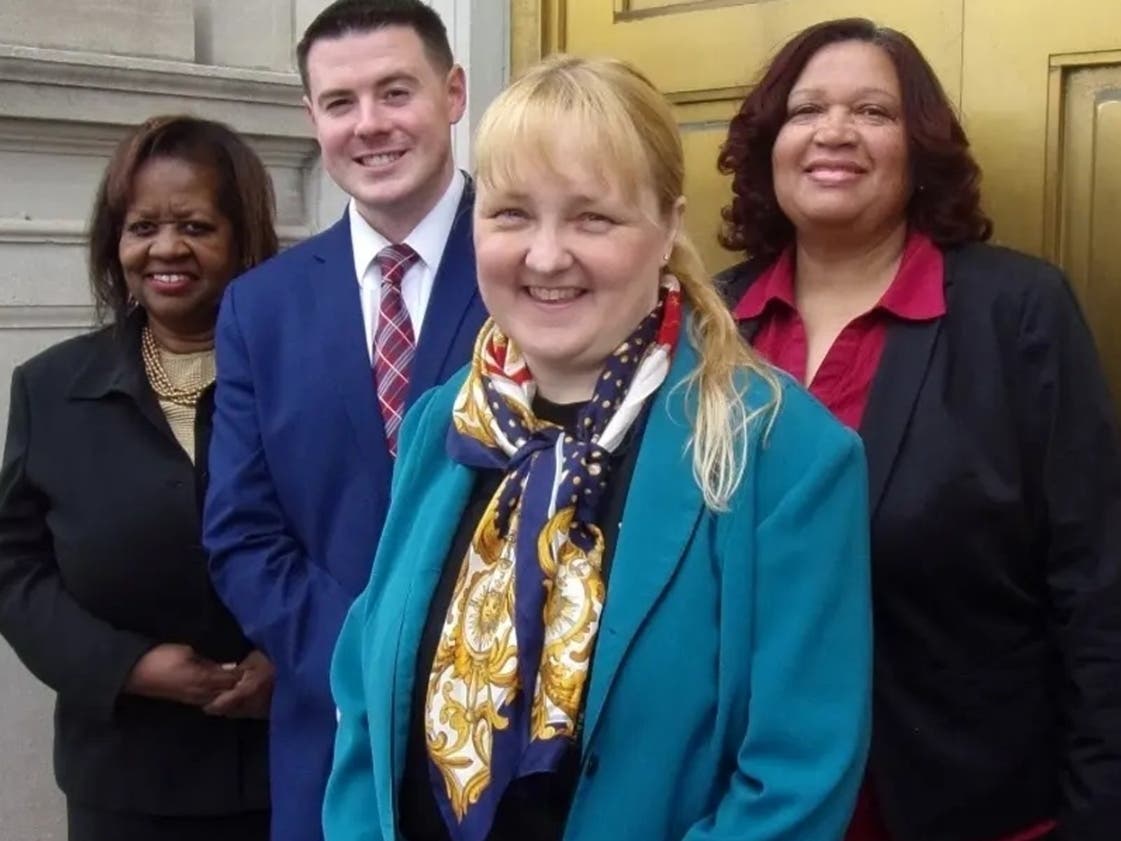Neighbor News
U.S. Supreme Court allows cheating in American elections
Lisa McCormick issued a powerful condemnation of a ruling that undermines the basic principles of democracy

Lisa McCormick, a staunch advocate for voting rights and social justice, has issued a powerful condemnation of the U.S. Supreme Court’s latest ruling in Alexander, et al. v. South Carolina Conference of the NAACP, et al.
The 6-3 decision by the Roberts Court, which allows South Carolina to implement a congressional map that dilutes the power of Black voters, marks another significant setback in the fight for racial equality in voting.
“The Supreme Court’s ruling is a stark reminder of the persistent challenges we face in ensuring fair and equal representation for all Americans, especially communities of color,” said Lisa McCormick. “This decision not only undermines the principles of democracy but also disproportionately impacts Black voters by allowing partisan interests to override their fundamental right to vote.”
Find out what's happening in Westfieldwith free, real-time updates from Patch.
The case was brought to the Supreme Court after a federal district court found South Carolina’s congressional map to be an unconstitutional racial gerrymander.
The map, drawn by the Republican-controlled state legislature, shifted tens of thousands of Black voters to different districts, effectively ensuring a political advantage for Republicans.
Find out what's happening in Westfieldwith free, real-time updates from Patch.
Despite the lower court’s unanimous finding of racial gerrymandering, the Supreme Court’s majority opinion, authored by Justice Samuel Alito, dismissed these conclusions and ruled in favor of the appellants.
“This decision is a clear deviation from the historical deference given to trial court findings on matters of racial discrimination,” said McCormick. “It sets a dangerous precedent that makes it exceedingly difficult for racial minority communities to challenge discriminatory practices and protect their voting rights.”
The ruling has sparked widespread outrage among civil rights organizations and advocates. The dissenting opinion, authored by Justice Elena Kagan and joined by Justices Sonia Sotomayor and Ketanji Brown Jackson, criticized the majority for “reworking the law” and distancing itself from the factual record presented in the case.
“This appalling decision prioritizes political manipulation over the rights of Black voters and disregards the clear evidence of racial discrimination in South Carolina’s redistricting process,” McCormick emphasized. “It is an affront to the principles of justice and equality that our democracy is supposed to uphold.”
Civil rights leaders across the nation are echoing McCormick's sentiments.
“The highest court in our land greenlit racial discrimination in South Carolina’s redistricting process, denied Black voters the right to be free from race-based sorting, and sent a message that facts, process, and precedent will not protect the Black vote,” said Janai Nelson, president and director-counsel of the Legal Defense Fund (LDF). “Today, the voices of Black South Carolinians were muted, and if we are not careful, the next set of votes denied could be those in your state. Make no mistake, LDF will not yield in the fight to build Black political power that represents the people who contribute mightily to this country and strengthen this democracy.”
“The decision also defies decades of precedent that allows plaintiffs to use a wide variety of evidence to demonstrate racial discrimination in voting and forces plaintiffs to offer a particular form of proof that race more than party explains South Carolina’s line-drawing,”said Leah Aden, senior counsel at LDF who argued the case. “As Justice Kagan’s dissent makes clear, today’s decision can only be justified through ‘reworking the law’ and ‘distance’ from the factual record. Despite this unfortunate decision, we will continue, including on remand on a surviving claim from this decision, to create fair redistricting maps and advocate for Black South Carolinian voters.”
“The Supreme Court has failed the American people,” said Brenda Murphy, president of the South Carolina State Conference of the NAACP. “Voting rights have taken another gut punch, and the future of democracy in South Carolina is dangling by a thread. Make no mistake — we are not backing down from this fight.”
“Today’s appalling decision prioritizes politics over the rights of our communities,” said John C. Yang, president and executive director of Asian Americans Advancing Justice – AAJC. “At the heart of the numerous hurdles that are confronting our democracy is the deprivation and dilution of the foundational right to vote, which significantly targets and impacts Asian, Black, Latino, and Native American communities.”
“The decision is a rejection of the historical deference given to the trial court’s factual findings and adds to the already difficult evidentiary burden we must demonstrate to successfully address racial discrimination in voting,” said Yang. “Once again, the finish line to end discrimination in voting has been moved further away for us. But we will continue to strive to overcome these additional barriers as we fight to ensure our communities have an equal voice in our democracy.”
McCormick stated that gerrymandering is designed to deprive voters of genuine choices by predetermining election outcomes, and as a form of cheating, it ought to be illegal.
McCormick called for renewed efforts to combat racial discrimination in voting and urged Congress to act swiftly to restore the full protections of the Voting Rights Act, including the passage of the John Lewis Voting Rights Advancement Act.
She also reaffirmed her commitment to advocating for fair redistricting practices and ensuring all communities an equal voice in the democratic process.
“Our fight does not end here,” said McCormick. “We will continue to stand with the NAACP, the ACLU, and all advocates for justice to challenge these injustices and protect the voting rights of every American. The integrity of our democracy depends on it.”